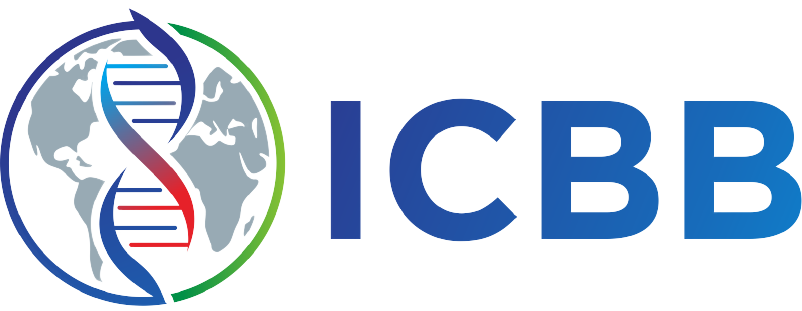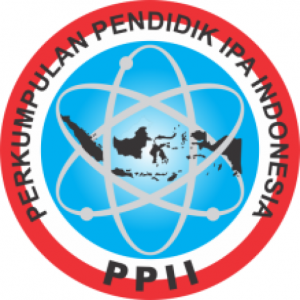Potential of Epigallocatechin-3-Gallate and 5-Fluorouracil Combination in Colorectal Cancer Therapy: Literature Review
Authors
Dara Pitra Syalsabila , Carolina Janicca Winda ManafeDOI:
10.29303/jbt.v24i1b.7950Published:
2024-12-14Issue:
Vol. 24 No. 1b (2024): Special IssueKeywords:
Colorectal cancer, epigallocatechin-3-gallate, potential, therapy, tea, 5-fluorouracil.Articles
Downloads
How to Cite
Downloads
Metrics
Abstract
This article reviews the potential of combining Epigallocatechin-3-Gallate (EGCG) from green tea and 5-Fluorouracil (5-Fu) to enhance the effectiveness of colorectal cancer therapy. Colorectal cancer is a common type of cancer with a high mortality rate, particularly due to resistance to standard therapies like 5-Fu. The article aims to explore the potential of EGCG as a combination therapy to overcome resistance and reduce the side effects of chemotherapy. The method used is a narrative literature review, collecting studies from PubMed, google scholar and proquest databases. The review findings show that EGCG can induce apoptosis, inhibit cancer cell growth, and increase cell sensitivity to 5-Fu. The combination of EGCG and 5-Fu has proven effective in suppressing cancer cell proliferation and reducing resistance to 5-Fu, especially in drug-resistant colorectal cancer cells. In conclusion, the EGCG and 5-Fu combination has the potential to become a more effective and safer colorectal cancer therapy with a lower risk of side effects, offering a promising prospect for future cancer therapy development.
References
Azwar, S., Seow, H. F., Abdullah, M., Faisal Jabar, M., & Mohtarrudin, N. (2021). Recent updates on mechanisms of resistance to 5-fluorouracil and reversal strategies in colon cancer treatment. Biology, 10(9), 854. https://doi.org/10.3390/BIOLOGY10090854.
Bracci, L., Fabbri, A., Del Corno, M., & Conti, L. (2021). Dietary polyphenols: promising adjuvants for colorectal cancer therapies. Cancers, 13(18), 4499. https://doi.org/10.3390/CANCERS13184499.
Filippini, T., Malavolti, M., Borrelli, F., Izzo, A. A., Fairweather-Tait, S. J., Horneber, M., & Vinceti, M. (2020). Green tea (Camellia sinensis) for the prevention of cancer. Cochrane Database of Systematic Reviews, (3). https://doi.org/10.1002/14651858.CD005004.pub3.
Fraga, C. G., Croft, K. D., Kennedy, D. O., & Tomás-Barberán, F. A. (2019). The effects of polyphenols and other bioactives on human health. Food & function, 10(2), 514-528. https://doi.org/10.1039/c8fo01997e.
Gmeiner, W.H. and Chidi Okechukwu, C. (2023) ‘Review of 5-FU resistance mechanisms in colorectal cancer: clinical significance of attenuated on-target effects’. Available at: https://doi.org/10.20517/cdr.2022.136.
Hossain, M. S., Karuniawati, H., Jairoun, A. A., Urbi, Z., Ooi, D. J., John, A., ... & Hadi, M. A. (2022). Colorectal cancer: a review of carcinogenesis, global epidemiology, current challenges, risk factors, preventive and treatment strategies. Cancers, 14(7), 1732. https://doi.org/10.3390/CANCERS14071732.
IARC (2020) ‘Angka Kejadian dan Mortalitas Kanker di Indonesia’, International Agency for Research on Cancer [Preprint].
Islam, M. R., Akash, S., Rahman, M. M., Nowrin, F. T., Akter, T., Shohag, S., ... & Simal-Gandara, J. (2022). Colon cancer and colorectal cancer: Prevention and treatment by potential natural products. Chemico-biological interactions, 368, 110170. https://doi.org/10.1016/J.CBI.2022.110170.
Van der Jeught, K., Xu, H. C., Li, Y. J., Lu, X. B., & Ji, G. (2018). Drug resistance and new therapies in colorectal cancer. World journal of gastroenterology, 24(34), 3834. https://doi.org/10.3748/wjg.v24.i34.3834.
Juul, F. E., Cross, A. J., Schoen, R. E., Senore, C., Pinsky, P. F., Miller, E. A., ... & Løberg, M. (2024). Effectiveness of Colonoscopy Screening vs Sigmoidoscopy Screening in Colorectal Cancer. JAMA Network Open, 7(2), e240007-e240007. https://doi.org/10.1001/jamanetworkopen.2024.0007.
Lee, Y. J., Cho, J. M., Sai, S., Oh, J. Y., Park, J. A., Oh, S. J., ... & Kim, E. H. (2019). 5-Fluorouracil as a tumor-treating field-sensitizer in colon cancer therapy. Cancers, 11(12), 1999. https://doi.org/10.3390/cancers11121999.
Li, X., Ma, Y., Wu, J., Ni, M., Chen, A., Zhou, Y., ... & Chen, W. (2023). Thiol oxidative stress-dependent degradation of transglutaminase2 via protein S-glutathionylation sensitizes 5-fluorouracil therapy in 5-fluorouracil-resistant colorectal cancer cells. Drug Resistance Updates, 67, 100930. https://doi.org/10.1016/J.DRUP.2023.100930.
Maida, M., Dahiya, D. S., Shah, Y. R., Tiwari, A., Gopakumar, H., Vohra, I., ... & Facciorusso, A. (2024). Screening and Surveillance of Colorectal Cancer: A Review of the Literature. Cancers, 16(15), 2746. https://doi.org/10.3390/cancers16152746.
Makmun, D., Simadibrata, M., Abdullah, M., Syam, A. F., Shatri, H., Fauzi, A., ... & Nursyirwan, S. A. (2021). Colorectal cancer patients in a tertiary hospital in Indonesia: Prevalence of the younger population and associated factors. World Journal of Clinical Cases, 9(32), 9804. https://doi.org/10.12998/WJCC.V9.I32.9804.
Nosrati, N., Bakovic, M. and Paliyath, G. (2017) ‘Molecular Mechanisms and Pathways as Targets for Cancer Prevention and Progression with Dietary Compounds’, International Journal of Molecular Sciences, 18(10), p. 2050. Available at: https://doi.org/10.3390/ijms18102050.
Rady, I., Mohamed, H., Rady, M., Siddiqui, I. A., & Mukhtar, H. (2018). Cancer preventive and therapeutic effects of EGCG, the major polyphenol in green tea. Egyptian Journal of Basic and Applied Sciences, 5(1), 1-23. https://doi.org/10.1016/J.EJBAS.2017.12.001.
Samudera, J., Daryanto, A., & Saptono, I. T. (2017). Competitiveness of Indonesian tea in International market. Indonesian Journal of Business and Entrepreneurship (IJBE), 3(1), 14-14. https://doi.org/10.17358/IJBE.3.1.14.
Sawicki, T., Ruszkowska, M., Danielewicz, A., Niedźwiedzka, E., Arłukowicz, T., & Przybyłowicz, K. E. (2021). A review of colorectal cancer in terms of epidemiology, risk factors, development, symptoms and diagnosis. Cancers, 13(9), 2025. https://doi.org/10.3390/CANCERS13092025.
Shaukat, A., Kahi, C. J., Burke, C. A., Rabeneck, L., Sauer, B. G., & Rex, D. K. (2021). ACG clinical guidelines: colorectal cancer screening 2021. Official journal of the American College of Gastroenterology| ACG, 116(3), 458-479. https://doi.org/10.14309/ajg.0000000000001122.
Shaukat, A. and Levin, T.R. (2022) ‘Current and future colorectal cancer screening strategies’, Nature Reviews. Gastroenterology & Hepatology, 19(8), p. 521. Available at: https://doi.org/10.1038/s41575-022-00612-y.
Siegel, R. L., Miller, K. D., Wagle, N. S., & Jemal, A. (2023). Cancer statistics, 2023. CA: a cancer journal for clinicians, 73(1), 17-48. https://doi.org/10.3322/caac.21772.
Toden, S., Tran, H. M., Tovar-Camargo, O. A., Okugawa, Y., & Goel, A. (2016). Epigallocatechin-3-gallate targets cancer stem-like cells and enhances 5-fluorouracil chemosensitivity in colorectal cancer. Oncotarget, 7(13), 16158. https://doi.org/10.18632/ONCOTARGET.7567.
Vodenkova, S., Buchler, T., Cervena, K., Veskrnova, V., Vodicka, P., & Vymetalkova, V. (2020). 5-fluorouracil and other fluoropyrimidines in colorectal cancer: Past, present and future. Pharmacology & therapeutics, 206, 107447. https://doi.org/10.1016/J.PHARMTHERA.2019.107447.
Wolf, A. M., Fontham, E. T., Church, T. R., Flowers, C. R., Guerra, C. E., LaMonte, S. J., ... & Smith, R. A. (2018). Colorectal cancer screening for average‐risk adults: 2018 guideline update from the American Cancer Society. CA: a cancer journal for clinicians, 68(4), 250-281. https://doi.org/10.3322/caac.21457.
Xi, Y., & Xu, P. (2021). Global colorectal cancer burden in 2020 and projections to 2040. Translational oncology, 14(10), 101174. https://doi.org/10.1016/J.TRANON.2021.101174
License
Copyright (c) 2024 Dara Pitra Syalsabila, Carolina Janicca Winda Manafe

This work is licensed under a Creative Commons Attribution 4.0 International License.

Jurnal Biologi Tropis is licensed under a Creative Commons Attribution 4.0 International License.
The copyright of the received article shall be assigned to the author as the owner of the paper. The intended copyright includes the right to publish the article in various forms (including reprints). The journal maintains the publishing rights to the published articles.
Authors are permitted to disseminate published articles by sharing the link/DOI of the article at the journal. Authors are allowed to use their articles for any legal purposes deemed necessary without written permission from the journal with an acknowledgment of initial publication to this journal.


























